National survey reveals plenty of specific knowledge gaps

By Toby Cosgrove, MD
Advertisement
Cleveland Clinic is a non-profit academic medical center. Advertising on our site helps support our mission. We do not endorse non-Cleveland Clinic products or services. Policy
How much exercise is best for your heart health? If you’re stumped, don’t feel bad. Just 20 percent of Americans were able to answer this question correctly in a recent national survey.
Exercise is one of the keys to preventing heart disease, which is the No. 1 killer of both men and women in the United States, yet most Americans don’t know that 2.5 hours a week — or an average of a half hour, five days a week — of moderate aerobic exercise is recommended for a healthy heart.
The survey — conducted by Cleveland Clinic in recognition of American Heart Month — also showed that 40 percent of Americans are exercising less than that recommended amount. It also revealed important misconceptions about how many calories to burn, who should undergo stress tests, and whether those with heart conditions should exercise.
Considering that heart disease kills about 1 in 4 Americans, these details are not trivial. If Americans can learn how — and how much — to exercise, we can greatly reduce cardiovascular disease by controlling high blood pressure, improving cholesterol levels, regulating weight and body fat and, of course, strengthening heart muscle.
Yet in our survey, only 32 percent of Americans say they exercise to benefit their hearts. Instead, weight is the biggest motivating factor for those who exercise weekly. There’s nothing wrong with that; anything that motivates a person to work out is positive, because there are always barriers that make exercise difficult, as survey respondents pointed out. Most commonly, respondents cited work obligations (41 percent) as the biggest deterrent, followed by fatigue (37 percent) and obligations with family and friends (28 percent).
Advertisement
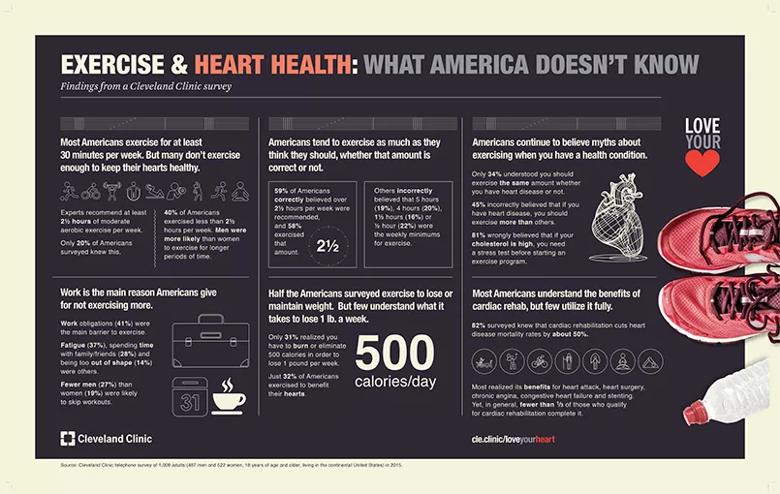
Other survey findings include:
The telephone survey of 1,009 adults (487 men, 522 women) gathered insights into Americans’ perceptions of heart disease and exercise as part of Cleveland Clinic’s “Love Your Heart” consumer education campaign in celebration of American Heart Month.
Advertisement
Advertisement
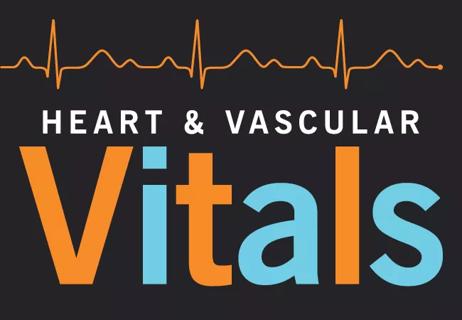
A sampling of outcome and volume data from our Heart & Vascular Institute
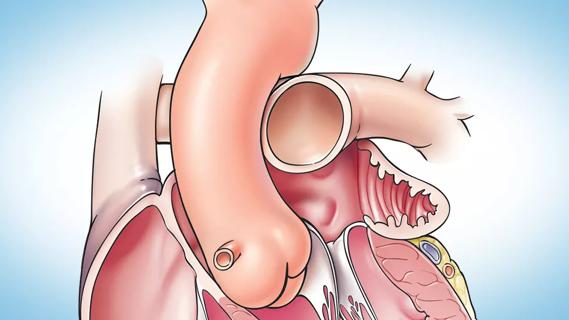
Concomitant AF ablation and LAA occlusion strongly endorsed during elective heart surgery
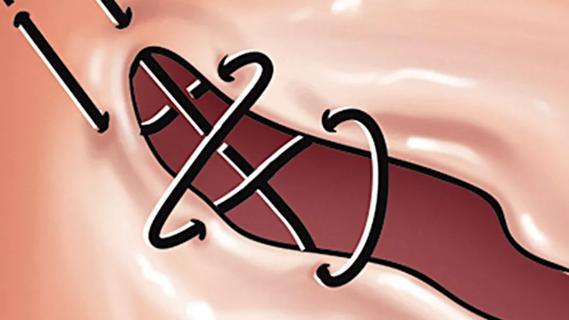
Large retrospective study supports its addition to BAV repair toolbox at expert centers
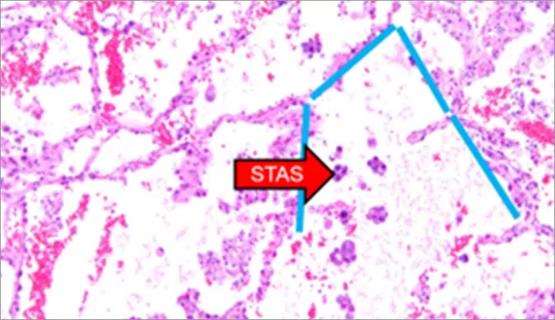
Young age, solid tumor, high uptake on PET and KRAS mutation signal risk, suggest need for lobectomy
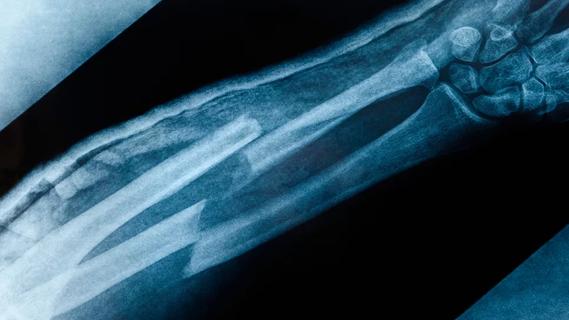
Surprise findings argue for caution about testosterone use in men at risk for fracture
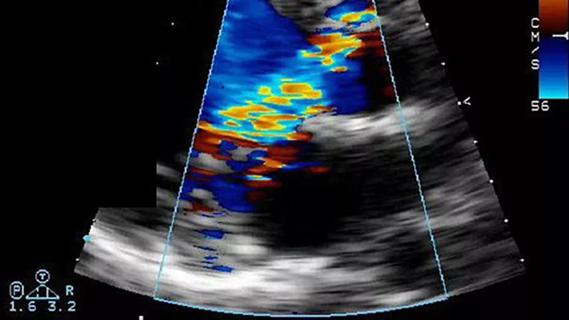
Residual AR related to severe preoperative AR increases risk of progression, need for reoperation

Findings support emphasis on markers of frailty related to, but not dependent on, age
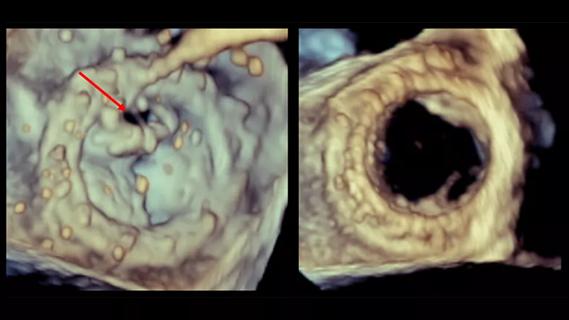
Provides option for patients previously deemed anatomically unsuitable